SUMMARY
This is AI generated summarization, which may have errors. For context, always refer to the full article.
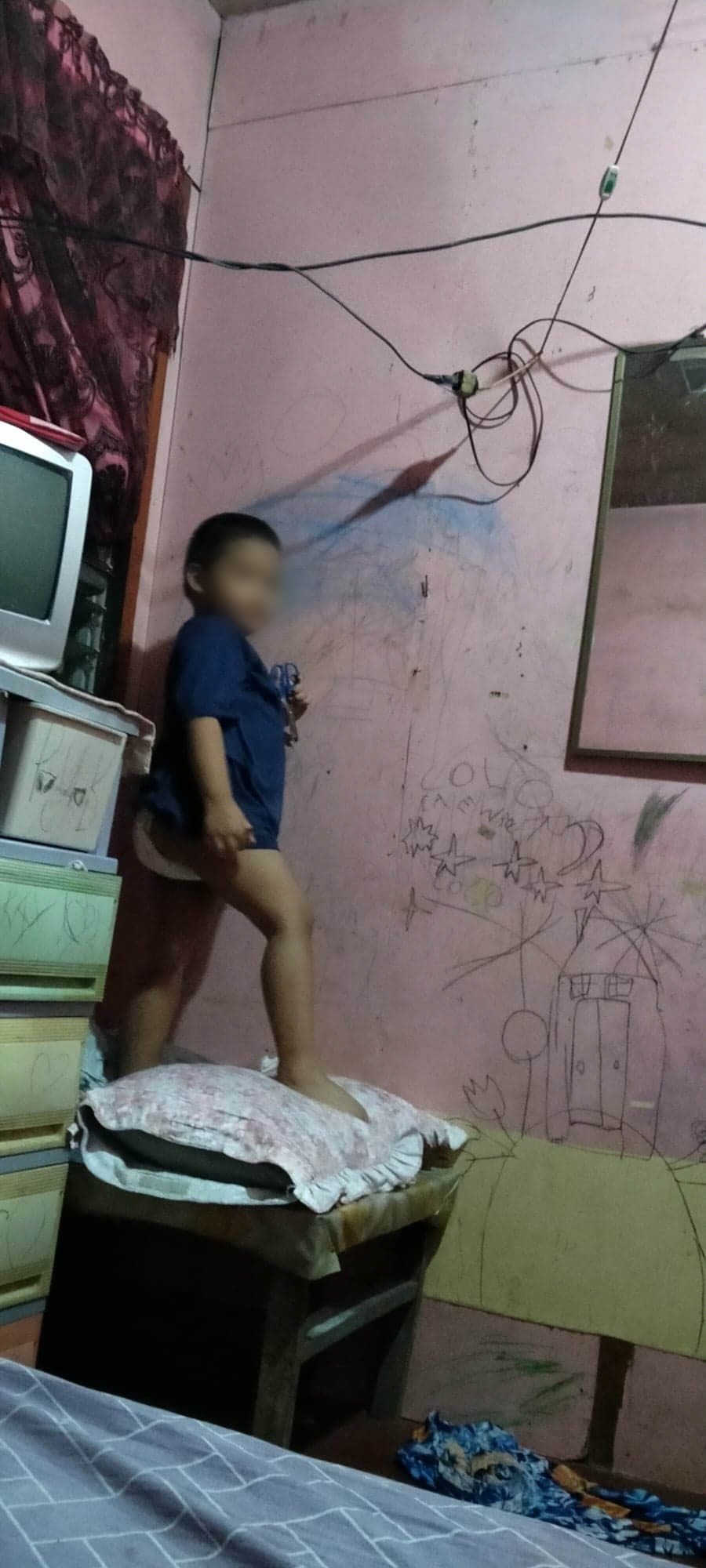
MANILA, Philippines – Every morning, Marjorey Rubio and her husband are awakened by their 6-year-old son’s plea to go outside the house. It had been the established routine of the child diagnosed with autism spectrum disorder (ASD), epilepsy, and global development delay.
It would have been like any other day of caring for their beloved son, except this time they are stuck at home following the lockdown.
With a sudden lifestyle change and with no outlet and therapy, their child’s behavior became so aggressive that they always end up getting hurt. Rubio showed Rappler bite marks on her arms and hands.
Their son has had recurrent diarrhea for weeks now. Neurodiverse children have sensory issues and usually have food fixations. Like many children with autism, their son is fixated with fast food. But closure of businesses has now made this impossible. Their son stopped eating for weeks.
This lack of nutrition exacerbates the problem for these children who already have weak immune systems in the first place.
“He won’t eat food. He lost two kilos in the first week and his behavior was at the worst. We have bite marks and scratches on our face and arms… Until now he has diarrhea but it has become manageable,” Rubio told Rappler in an interview.
Rubio and her husband, like many other parents with similarly situated children, have been left with no option but to think of their own ways to alleviate their kids’ pain.
On top of the disruption to their lives and routines, families face mounting financial pressures and the health threat posed by the novel coronavirus.
“For normal parents, this may be a minor issue. But for us, it always feels three times the struggle. That’s why I hope they can ease our burden by allowing us to travel. But of course, we will prove to them that we will not violate the rules, like going into grocery stories. We are gonna do our part to avoid the spread of the virus. We just want minimal disruption to the child’s routine.”
Unmet basic needs
Kissy Gabor from Butuan City is a single parent of two children. Her 5-year-old son was diagnosed with ASD in February 2019. Even then, she said she could not afford to send her kid to therapy.
In a video call with Rappler, she shared the struggles of her son: lack of outlet, disrupted routines, and worsening behavioral problems. On Monday, the Caraga region was placed under enhanced community quarantine after recording its first case.
Gabor worked as a call center agent in Davao City until she was forced to stop in August 2019 because her aging mother could no longer handle her son.
She went back to her hometown and started selling cooked food outside a nearby school. Besides this, she has no stable source of income now that schools are closed. She tried to post on her social media account food items she cooked, in the hope that her neighbors and online friends would see and buy them.
She already went to the Department of Social Welfare and Development in Caraga to avail of the P5,000 monthly cash subsidy but she got nothing. She was then told to coordinate with her barangay but still to no avail. (READ: Challenges facing social amelioration for the coronavirus)
“The DSWD here in Caraga is not efficient. I don’t know why the government here says we are not covered by the amelioration program because we live in a cemented house. We are just living in somebody else’s house. Why are we not included? They said it’s only for the poorest of the poor. What are we?” Gabor said in Filipino.
Stuck in a seeming roadblock, she admitted feeling so hopeless and depressed that she would frequently breakdown.
“Right now I’m very, very helpless. Before the quarantine, I always get depressed from time to time. All the more now that I have no source of income. I have no idea how we will survive every single day.”
Further development delay
In Davao City, Marianne Navarra’s 4-year-old son was diagnosed with ASD in March 2019. He is undergoing occupation and speech therapies. He has also been showing signs of Oppositional Defiant Disorder (ODD), according to his therapist.
Marianna and her husband wanted to confirm this with a neuropediatrician but were not able to due to physical distancing and scheduling issues.
Like the sons of Rubio and Gabor – whose routines were drastically altered – their child’s behavioral issues have worsened. It is a problem sometimes, she said, because their son unwittingly hurts his older sister and infant brother.
“Actually, our difficulty is how to make it daily. Before the quarantine, we go out biking or to exercise to fulfill the stimulus needed by his body. But now, it’s mostly hyperactivity and meltdowns.”
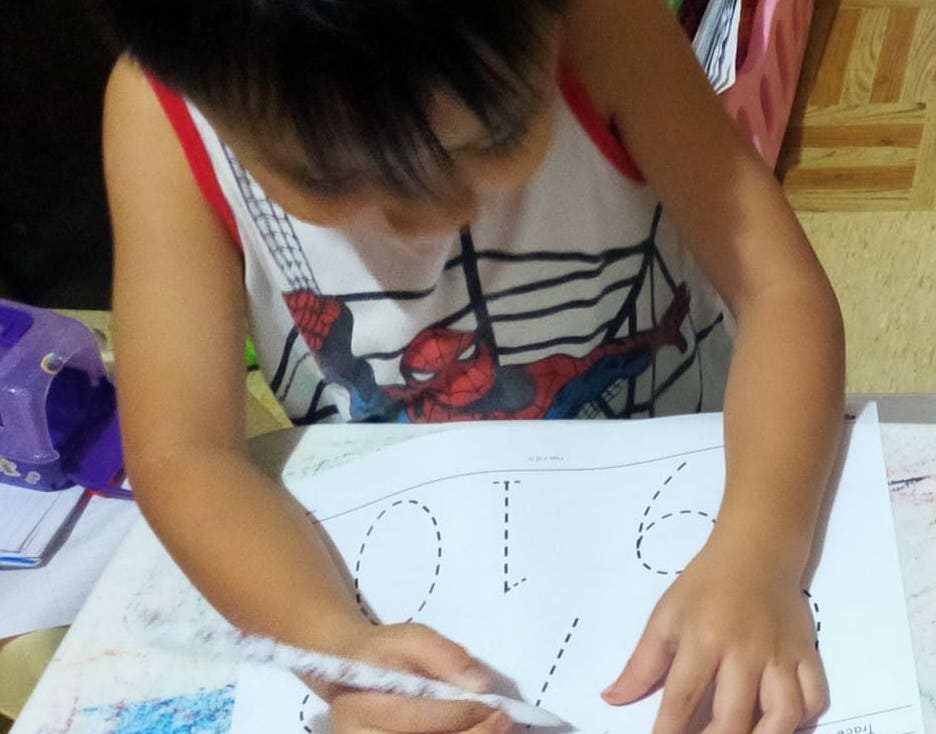
They are also worried that their child’s development would be further delayed. Their son, who is non-verbal, was supposed to undergo an assessment to check if he could be enrolled next school year. They also planned to enroll him in summer classes to prepare him mentally, physically, and socially. But due to the pandemic, all these plans were shelved.
“It is a bit frustrating because we don’t know what will happen to him next school year. Children like him have issues adapting. They have rigidity adapting to new people, new places. This means he will be further delayed. We wanted to enrol him so he could be socialized at a young age but we could not do it now,” Navarra said in a mix of English and Filipino.
Lack of understanding
The lockdown has forced parents to think of creative ways to address the special needs of their children.
Rubio recounted how she and her husband would find creative routes to avoid checkpoints, just so they could let their child see the outside environment.
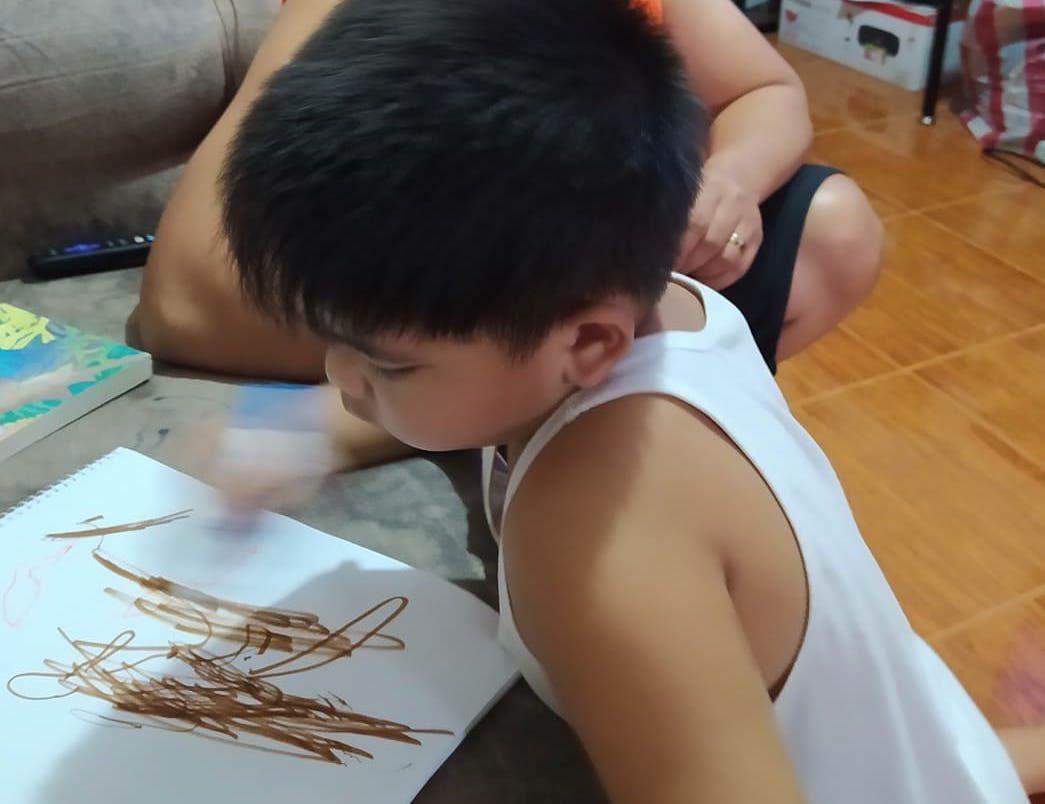
“But I don’t know until when we can do it. We are lucky, sometimes the authorities don’t see our child seated at the back. But if they see him, we’re doomed. I hope they can allow people with special needs because this is almost a matter of life and death for these children,” Rubio said.
Mona Liza Veluz, national president of the non-profit organization Autism Society of the Philippines, asked for compassion from those implementing the quarantine and lockdown.
“They have to understand this is a different situation, we need protection and compassion. Even if the child or person does not look like he or she has autism, it does not mean they are not going through something,” she told Rappler.
Based on some feedback from their almost 13,000 members, Velez said there seems to be poor mapping of People With Disabilities (PWDs) by the local government units.
“I understand the logistical difficulty of implementing assistance for families. But what seems to be happening now is that the mapping of PWDs no longer exists. We have this information in the barangays, in the LGUs because our PWDs registered in their LGUs. But because of the current situation, there are families that are not prioritized. Sometimes authorities do not see the gravity of their situation,” she said in a mix of Filipino and English.
“Another thing now is the goods being given by the government. These are goods that are pre-determined by the budget of the LGU and barangay. But the issue with our children is that since they have sensory issues, there are food items they could not eat. The food items they are eating are not available, that is why many children with autism do not get adequate nutrition at this point,”
Aware of how these issues could be misinterpreted by an uninformed public, Veluz called for understanding. What seem trivial for most people are actually serious and consequential for people with autism.
“Imagine, they have been used to the routine for 5, 10, 20, 40 years. I have a 27-year-old son with autism and he is also like that. When we break the routines, it causes them a lot of stress that not very many people can understand,” she said.
“Whenever there are outsiders who hear our problems, they would say: ‘Your problems are too petty. It’s not like you will die if you cannot go out or cannot buy your fried chicken.’ But it’s beyond the physical item. It’s the genuine distress the person feels which we can never explain because we do not have autism.”
Virtual relief: therapy, consultations, community
With the new reality, parents are relying on the internet to address their concerns.
In Facebook groups dedicated to autism, parents ask advice, support, medicine, and sometimes financial help from other families.
ASP has also started Ask The Experts, a live Q&A program on Facebook, to help their members and other parents gain access to doctors and therapists.
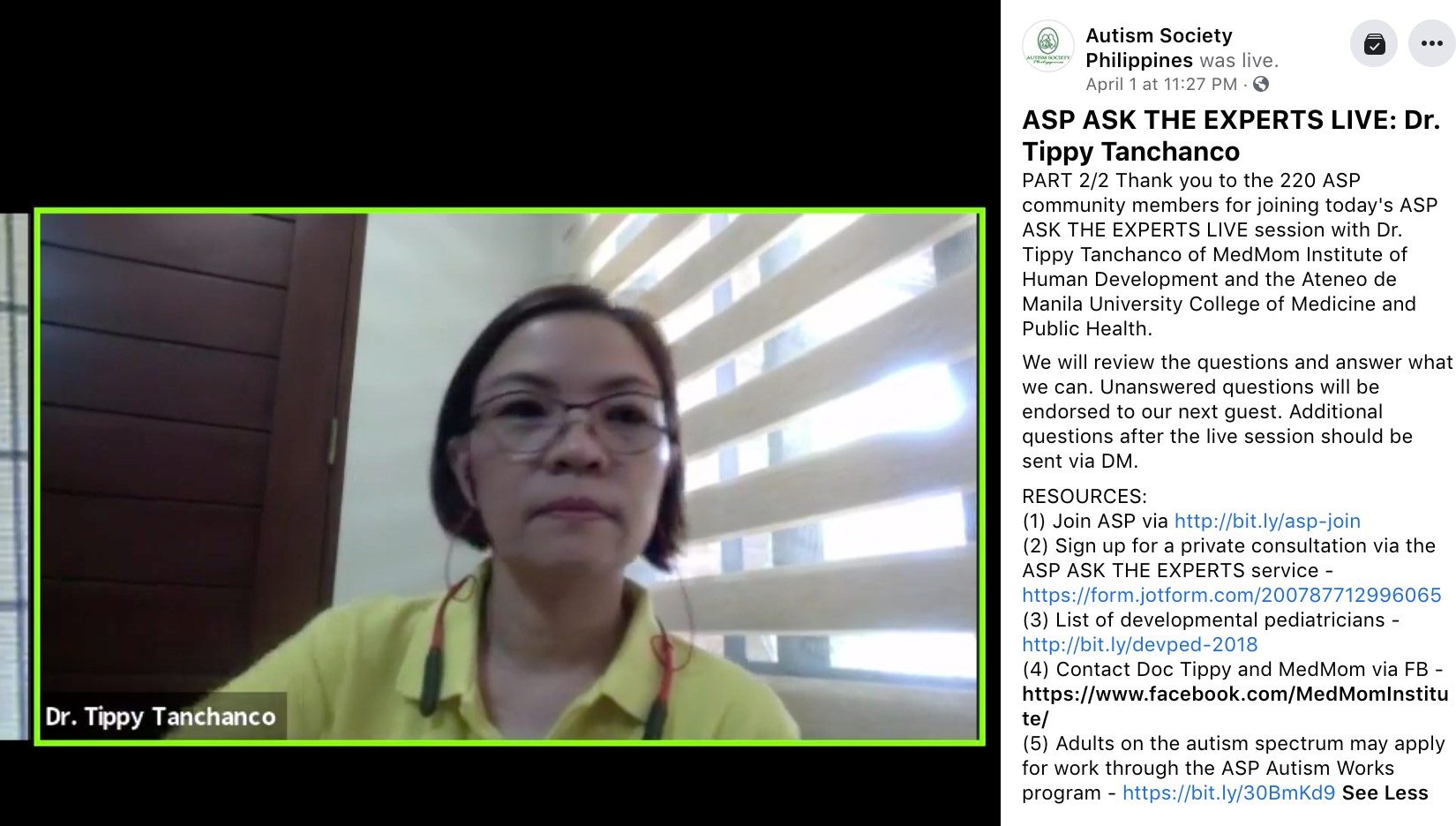
Veluz said they also started airing live online exercise and wellness activities for children.
Navarra and Gabor have been giving their kids activities at home, but both said this is easier said than done.
“It is really difficult to make children with autism adjust, especially if they have years of established routine. Best effort but it is still different if the therapy is done in a center and by an expert, especially for my kid who has possible ODD,” Navarra said.
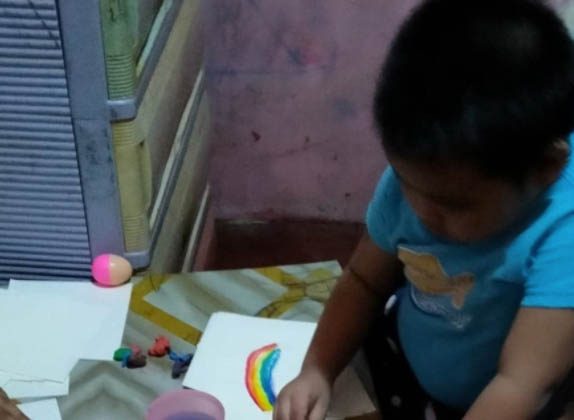
On top of this, ASP is now working on helping secure non-controlled medicines, especially for those living outside Manila.
“ASP is exhausting all fronts first. If needed, we will ask for donations from individual donors,” Veluz said.
Worries about possible extension
President Rodrigo Duterte has extended the lockdown to April 30 – a reality that worries parents. While they agree with such policy, many parents do not know how long their children can continue to keep up.
“I hope the government realizes that many families will be affected if they do not plan out the next weeks. I don’t think we are gonna die from coronavirus. We might die from stress over our children’s conditions and pain,” said Rubio.
“In a way, I’m lucky because we can still survive but this is how I’m feeling. How much more those parents who really have nothing?”
Shai Reyes, a mother of two children with autism, said she would no longer have a salary should the policy be extended. She said she is happy that she has more time with her kids, but the thought of having no regular income torments her.
“No work, no pay after April 15. I really think about it every day: will this be extended or not? That’s why I really hold on to my remaining money and only spend a few, so that when push comes to shove, I will still have some for another 15 days,” Reyes said.
As for Gabor, she has nothing left to do but to keep on cooking food, in the hopes that she will be able to sell them. She wanted to work as an online English tutor but access to equipment is a problem.
“Ano kaya ititinda ko? Nase-stress ako, lalo ‘yung wala kaming pera. ‘Yung may hinihingi ang anak mo na pagkain, hindi mo mabigay, doon ako nagbe-break down kasi ang liit-liit ng hinihingi, ‘di mo pa mabigay,” Gabor said.
(What else can I sell to earn money? I am stressed because we don’t have money. When my child asks for food and I’m unable to give it, that’s what makes me break down. What is being asked is so little, yet I’m unable to provide it.)
“As autism mothers, we want the whole world to know, especially here in the Philippines, so they know what we are going through, especially us poor parents. This condition is very expensive. For poor parents like us, it’s even more difficult.” – Rappler.com
Add a comment
How does this make you feel?
There are no comments yet. Add your comment to start the conversation.